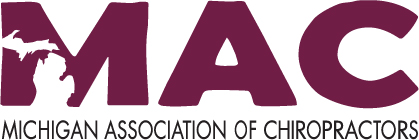Published Opinion Holds That Appeals to DIFS Prior to Filing a Lawsuit is Wholly Discretionary
“Because the plain language of the operative statutes and regulations permit an administrative appeal rather than require it, [plaintiff] was not required to appeal the utilization review decision to the DIFS to satisfy administrative exhaustion requirements…”
– Michigan Court of Appeals
On May 25, 2023, the Michigan Court of Appeals issued a decision in True Care Physical Therapy v. Auto Club Group Insurance Company (COA Docket No. 362094), an auto no-fault case that involved a health care provider who filed suit against an auto insurance company rather than first appeal the insurer’s utilization review determination to the Michigan Department of Insurance and Financial Services (DIFS). According to the COA, Michigan’s revised auto no-fault insurance statute does not require a medical provider to administratively appeal an insurance company’s utilization review. Rather, the administrative appeal process is optional, and providers may instead file suit without an appeal to DIFS.
The Initial Case
In the case, a 2018 auto accident victim suffered multiple injuries to her neck, back, and right shoulder and began a period of physical therapy with the plaintiff that lasted approximately two years. In 2021, the defendant stopped paying for treatment, following their utilization review. Defendant’s utilization review concluded that plaintiff’s treatment exceeded the American College of Occupational and Environmental Medicine (ACOEM) guidelines’ recommendations for the frequency and duration of treatment for injuries like the plaintiff’s patient. They then issued an explanation of benefits (EOB) denying plaintiff payment based on its utilization review.
Rather than appeal defendant’s determination to the Michigan Department of Insurance and Financial Services (DIFS), plaintiff filed a complaint in circuit court claiming that the defendant breached its contractual obligation to provide no-fault insurance benefits by refusing to pay for reasonable and necessary medical services that the plaintiff provided to the patient covered by the defendant.
Defendant moved for summary disposition on the basis that Michigan law (MCL 500.3157a) and The Administrative Rule governing utilization review (Rule 500.65) required plaintiff to appeal to DIFS before filing suit.
Plaintiff responded, arguing that it had a valid enforceable assignment of PIP benefits from their patient and that MCL 500.3112 of the no-fault act explicitly granted it the right to pursue a direct cause of action against the insurer in the trial court. An administrative appeal to DIFS was not mandatory, they insisted, and that if it were, that rule would conflict with other provisions of the no-fault act.
Without a hearing, the trial court issued an opinion and order denying the motion for summary disposition, ruling that MCL 500.3112 specifically granted plaintiff a direct and independent statutory cause of action against the defendant, and that the cause of action was without preconditions (they were not required to appeal to DIFS first).
The COA Opinion
A published opinion released Friday, May 26, 2023, written by Judge Noah Hood, joined by Judge Elizabeth Gleicher and Judge Allie Greenleaf Maldonado, affirmed the Oakland Circuit Court’s denial of summary disposition filed by the defendant, stating:
“The trial court correctly denied [defendant’s] motion for summary disposition because it had subject-matter jurisdiction over [plaintiff’s] claim. At its core, a utilization review is an ‘initial evaluation’ of the appropriateness of the level and quality of treatment. The cause of action that the Legislature provided in MCL 500.3112 is not preconditioned on the permissive administrative appeal of that initial evaluation. The plain language of the no-fault act demonstrates that the Legislature intended alternate pathways for determining whether care was appropriate.”
In the opinion’s conclusion, the Court writes:
“The trial court concluded that the no-fault act, MCL 500.3101 et seq., did not require True Care to administratively appeal Auto Club’s utilization review through the procedures in MCL 500.3157a and Mich Admin Code, R 500.65. We agree and affirm.”
It is not known at this time if the defendant will appeal the COA ruling to the Michigan Supreme Court, Stay tuned for updates as they become available.
If you’d like more information on how this case could affect your auto no-fault reimbursements, please contact Tim or Carl at the MAC.
Sources:
CPAN, “COA: Admin Appeals to Insurance Reviews Not Mandatory Before Lawsuit,” May 30, 2023
Text of Michigan Court of Appeals decision in True Care Physical Therapy v. Auto Club Group Insurance Company (COA Docket No. 362094)

